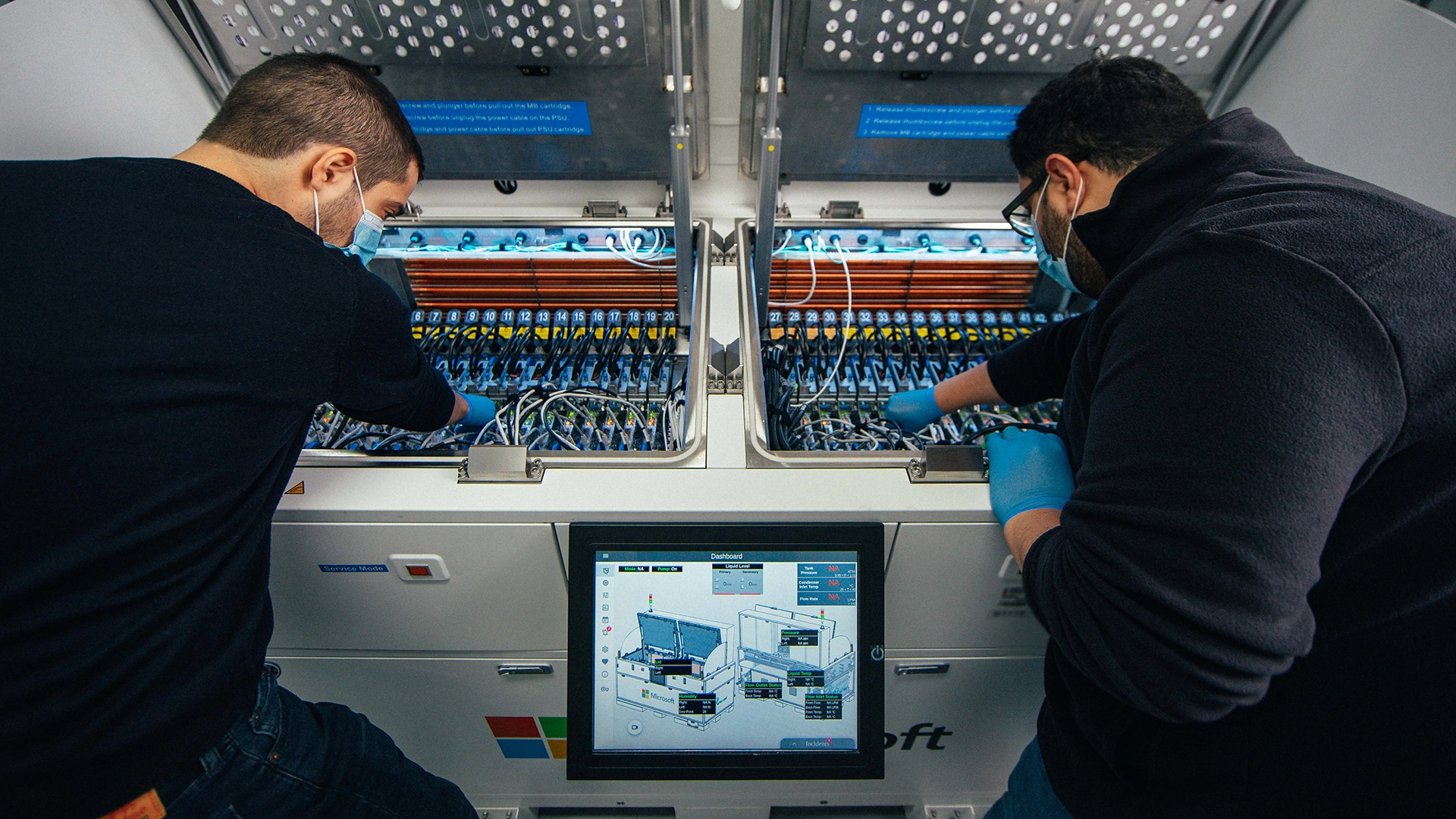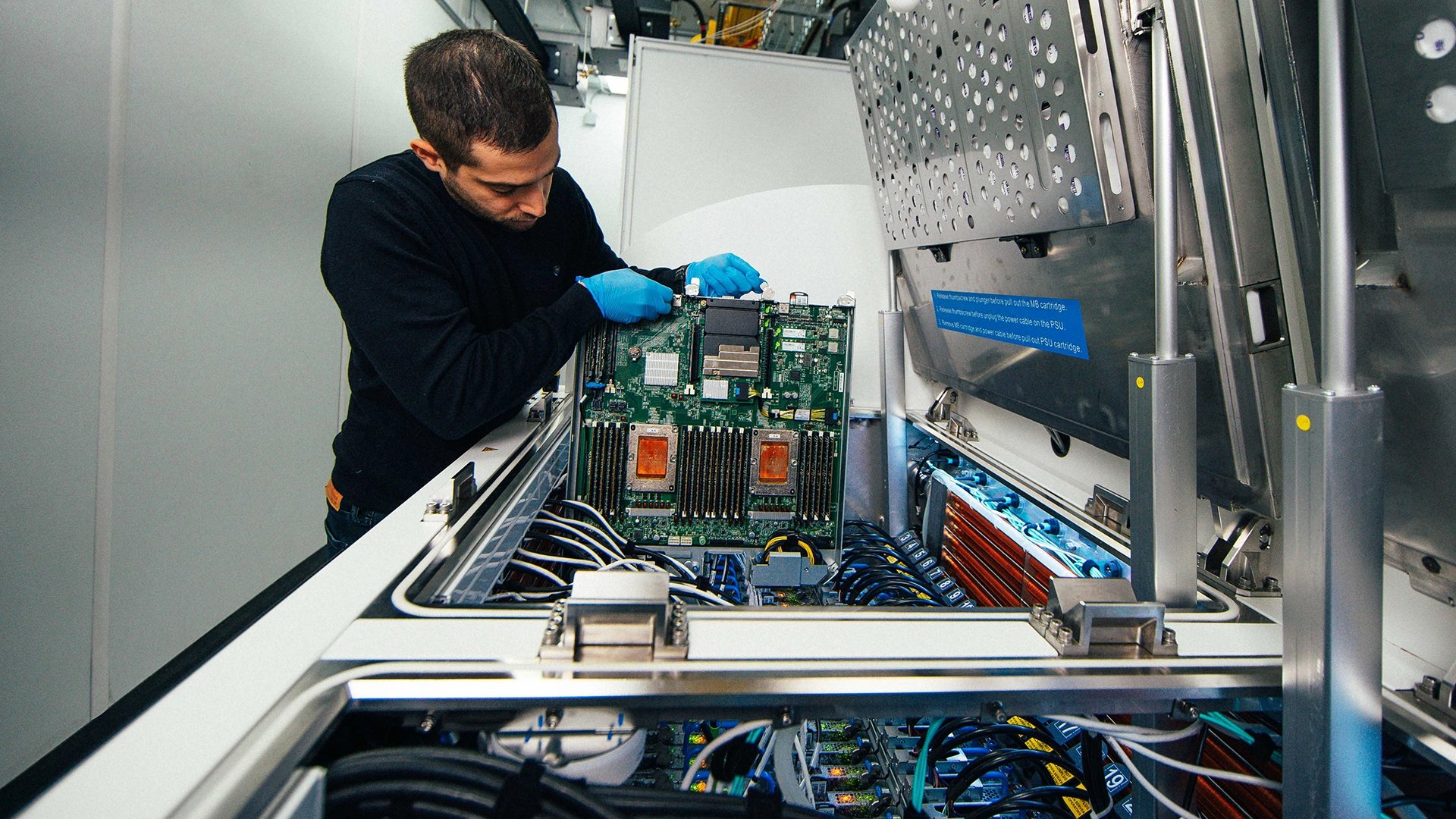1 min read
Wiwynn Reports Fourth Quarter 2025 Unaudited Financial Results
Today (January 8), Wiwynn Corporation announced unaudited consolidated financial results for the fourth quarter of 2025.
1 min read
Press
Updated on August 3, 2022

“We are the first cloud provider that is running two-phase immersion cooling in a production environment,” said Husam Alissa, a principal hardware engineer on Microsoft’s team for datacenter advanced development in Redmond, Washington.
“Air cooling is not enough,” said Christian Belady, distinguished engineer and vice president of Microsoft’s datacenter advanced development group in Redmond. “That’s what’s driving us to immersion cooling, where we can directly boil off the surfaces of the chip.”
Microsoft investigated liquid immersion as a cooling solution for high-performance computing applications such as AI. Among other things, the investigation revealed that two-phase immersion cooling reduced power consumption for any given server by 5% to 15%.
The findings motivated the Microsoft team to work with Wiwynn, a datacenter IT system manufacturer and designer, to develop a two-phase immersion cooling solution. The first solution is now running at Microsoft’s datacenter in Quincy.


1 min read
Today (January 8), Wiwynn Corporation announced unaudited consolidated financial results for the fourth quarter of 2025.

1 min read
Taipei, December 2, 2025 - Wiwynn (6669) driven by its vision of "Unleash the Power of Digitalization, Ignite the Innovation of Sustainability," is...

3 min read
Best verified results on Llama 2 70B LoRA using 1x and 8x NVIDIA GB200 NVL72 systems, production-deployed to power APAC AI training at YTL. Taipei,...